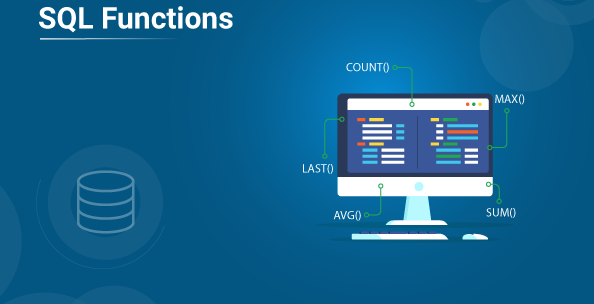Data science help in SEO: In the ever-evolving landscape of digital marketing, the synergy between data science and SEO has become a game-changer. As businesses strive to enhance their online presence, data science emerges as a powerful tool, offering insights that go beyond traditional strategies. In this blog post, we will delve into the ways data science is transforming SEO, unlocking new dimensions for optimizing websites and driving unprecedented results.
Table of Contents
Toggle1. Understanding the Role of Data Science in SEO:
Data science involves the extraction of valuable insights from vast datasets, and when applied to SEO, it opens up avenues for more informed decision-making. From analyzing user behavior to predicting trends, data science empowers SEO professionals to navigate the complex world of search engine algorithms with precision.
2. Keyword Analysis and Targeting:
Data science allows for a deeper understanding of user search patterns and behaviors. Through advanced analytics, SEO experts can identify relevant keywords that resonate with their target audience. This goes beyond conventional keyword tools, enabling a more nuanced approach to keyword analysis and strategic targeting.
3. Predictive Analytics for Content Creation:
By leveraging predictive analytics, data science enables SEO professionals to anticipate content trends and user preferences. This foresight is invaluable when creating content that not only aligns with current search trends but also positions a website for future relevance, thereby enhancing its SEO performance over time.
https://informationarray.com/2023/12/06/decoding-data-insights-sql-server-analysis-services-vs-power-bi/
4. User Experience Optimization:
Data science plays a crucial role in understanding user experience (UX). Through advanced analytics and machine learning models, SEO professionals can gain insights into how users interact with a website. This information is instrumental in optimizing site structure, content placement, and overall design to improve user satisfaction and, consequently, search engine rankings.
5. Personalized Search Results:
Search engines are increasingly prioritizing personalized search results. Data science allows SEO experts to analyze user data, preferences, and behavior to tailor content and recommendations for individual users. This personalization not only improves user engagement but also enhances a website’s SEO performance by aligning with search engine algorithms.
6. Link Building Strategies:
Data science aids in identifying high-quality link-building opportunities. By analyzing vast datasets related to link authority, relevance, and user engagement, SEO professionals can develop data-driven link-building strategies. This ensures that links are not just abundant but also valuable, contributing positively to a website’s SEO profile.
7. Performance Tracking and Reporting:
Data science streamlines performance tracking and reporting. Advanced analytics tools allow SEO professionals to measure the impact of their strategies in real-time, providing actionable insights for continuous improvement. This data-driven approach facilitates agile decision-making and the refinement of SEO campaigns for optimal results.
8. Competitive Analysis:
Data science provides a competitive edge by enabling comprehensive competitor analysis. By examining competitors’ strategies, keyword performance, and content tactics, SEO professionals can identify opportunities and gaps in the market, allowing for more strategic decision-making.
https://informationarray.com/2023/12/04/mastering-technical-interviews-with-github-copilot-a-comprehensive-guide/
FAQs about Data Science in SEO:
- Q: How does data science impact keyword research in SEO?A: Data science enhances keyword research by providing a deeper analysis of user behaviors, preferences, and trends. It goes beyond traditional keyword tools, enabling a more comprehensive understanding of the target audience’s search patterns.
- Q: Can data science predict future content trends for SEO?A: Yes, through predictive analytics, data science can anticipate content trends and user preferences. This foresight allows SEO professionals to create content that aligns with current trends and positions the website for future relevance.
- Q: In what ways does data science improve user experience optimization in SEO?A: Data science aids in understanding user interactions with a website. Through advanced analytics and machine learning, SEO professionals can optimize site structure, content placement, and design to improve user satisfaction and, consequently, search engine rankings.
- Q: How does data science contribute to personalized search results in SEO?A: Data science analyzes user data, preferences, and behaviors to tailor content and recommendations for individual users. This personalization aligns with search engine algorithms, improving user engagement and SEO performance.
- Q: How does data science influence link building strategies in SEO?A: Data science helps identify high-quality link-building opportunities by analyzing datasets related to link authority, relevance, and user engagement. This ensures that link-building efforts are not just abundant but also valuable for SEO.
- Q: Can data science streamline performance tracking and reporting in SEO?A: Yes, data science tools streamline performance tracking and reporting. They provide real-time insights, allowing SEO professionals to measure the impact of their strategies and make agile, data-driven decisions for continuous improvement.
- Q: How does data science contribute to competitive analysis in SEO?A: Data science enables comprehensive competitor analysis by examining competitors’ strategies, keyword performance, and content tactics. This helps identify opportunities and gaps in the market for more strategic decision-making.
- Q: Is data science essential for small businesses engaging in SEO?A: While small businesses may start with basic SEO strategies, incorporating data science becomes increasingly essential for staying competitive. It allows for more nuanced insights, strategic decision-making, and adaptability in the dynamic landscape of SEO.
- Q: Can data science be applied retroactively to improve existing SEO strategies?A: Yes, data science can be applied retroactively to analyze past performance, identify areas for improvement, and refine existing SEO strategies. This iterative process ensures continuous optimization based on evolving data insights.
- Q: Are there risks associated with relying solely on data science for SEO decisions?A: While data science is a powerful tool, it’s essential to balance it with human expertise and qualitative insights. Over-reliance on data alone may overlook contextual nuances and creative aspects vital for a holistic SEO strategy.
In the dynamic world of SEO, where staying ahead of the curve is paramount, data science emerges as a powerful ally. The integration of data-driven insights into SEO strategies enhances precision, effectiveness, and adaptability. As businesses strive for online visibility and relevance, harnessing the power of data science is no longer an option but a strategic necessity. Embrace the future of SEO by unlocking the potential within your data.









